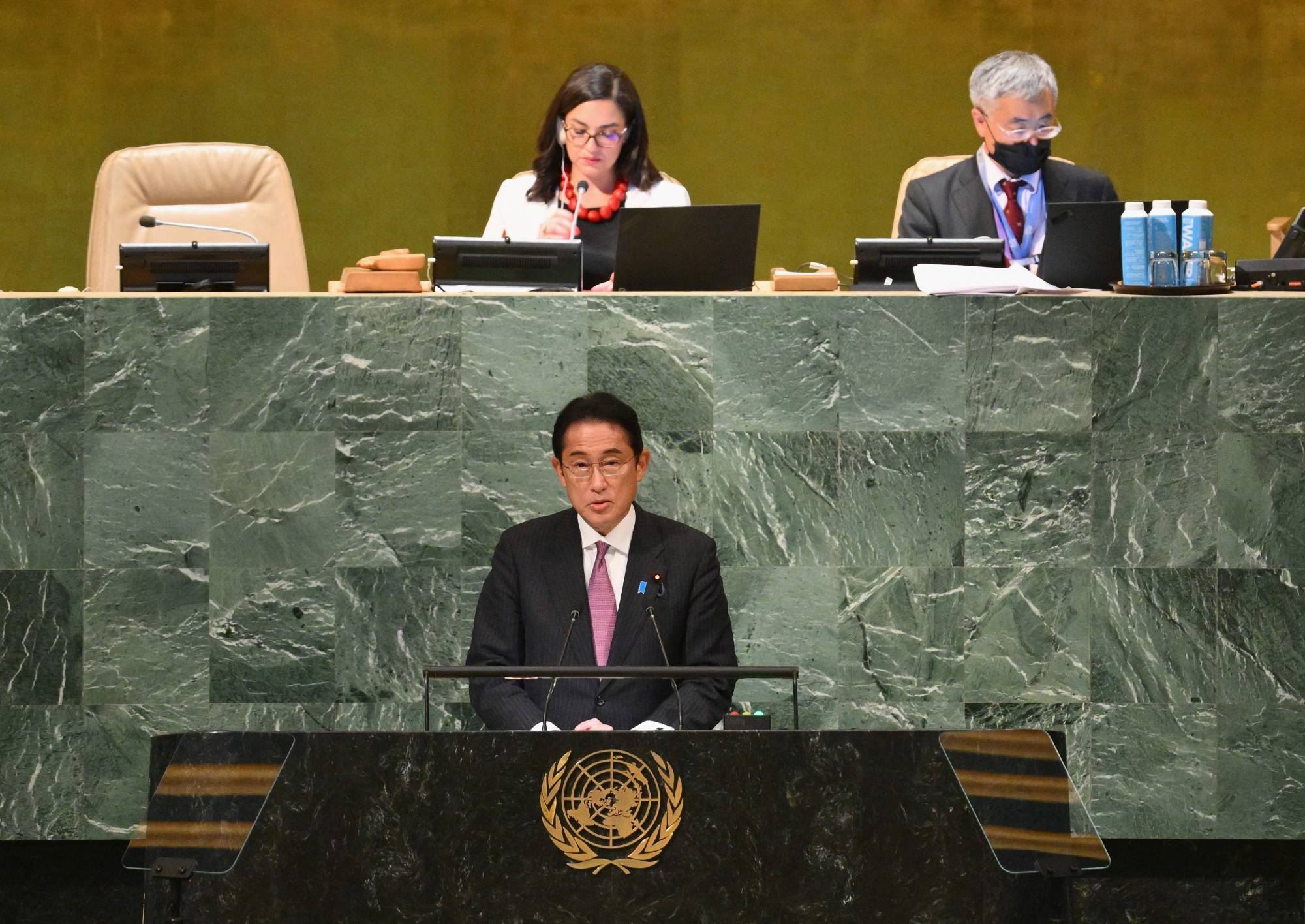If ever there was a time for the United Nations to show its utility, it would be when one member state was invaded by another and the rule-based international order, the cornerstone of the U.N. system, would appear threatened as a result.
Instead, the world body has been shaken, incapable of mustering action to protect a member, itself or the order that gives the institution meaning and purpose.
Prime Minister Fumio Kishida condemned the impotence of the world body and called for structural reform in remarks to the United Nations General Assembly earlier this week. He is not the first Japanese prime minister to make this case, but few have done so at a time of greater peril or urgency.



















With your current subscription plan you can comment on stories. However, before writing your first comment, please create a display name in the Profile section of your subscriber account page.